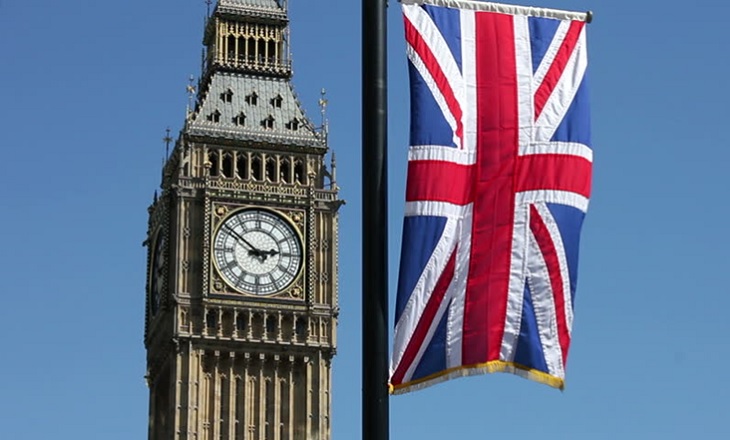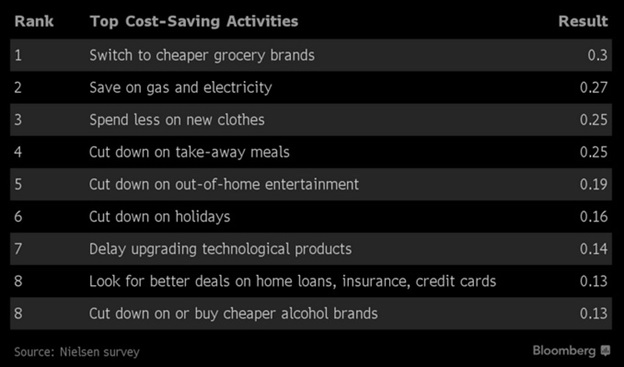The following article was written by Luis Aureliano, a business writer and financial analyst. With over 15 years of experience in global finance and an MBA in economics and management, Luis’s areas of expertise include business, marketing, communications, personal finance, macro economics, stocks and emerging markets.
In July, the Office for National Statistics (ONS) reported a strong uptick in retail sales over June. Volume increased 0.3%, as Britons spent more on food than they cut back on other goods. Retail sales growth figures from June were revised lower to 0.3%, from 0.6%. It’s interesting to point out that food sales dropped by 1.1% in June and increased by 1.5% in July. With the exception of household goods, volume sales fell across other sectors. The perils of the Brexit are starting to snap at the heels of Britons. The July data has been welcomed by economists at ECN Capital.
We see this data as particularly positive. At a time where unemployment levels are at record lows, and real wage growth is lagging, UK retail sales figures are encouraging.
Market Incongruence Creates Uncertainty for Traders
The current state of the UK economy is somewhat perplexing. On the one hand, the jobless rate (unemployment rate) is at its lowest level in 42 years (since 1975) at just 4.4%. However, real wages have declined by 0.5%. This goes contrary to the classic economic theory of the Phillips Curve. According to this, when labour markets have low levels of unemployment, real wages should start rising. The theory is as follows: tightness in labour markets means that skilled people are in demand. In the UK, sticky wages have been curtailed by inflationary pressures. Once again, the incongruence is perplexing but easily explained.
The Brexit uncertainty means that many employees are not going to risk job security by requesting wage increases. Employers are also reluctant to incur additional costs at this time. Additionally, many UK employees are no longer part of trade unions, so they’ve lost much of their collective-bargaining ability to push for higher wages. Another theory which holds water is the national living wage in the UK. Now that there is a national living wage, employers may be reluctant to pay anything above that to higher paid workers, and only be increasing the minimum wages of their lowest salaried employees.
What Is Going on with Consumer Momentum in the UK?
Presently, consumption patterns by Britons indicate a worrying trend. This is a period of exceptionally weak sales growth, and has not been seen since 2013. Consumers across the UK are reducing their purchases, owing to the uncertainty they feel about geopolitical events. The Brexit conundrum is one that weighs heavily on the minds of Britons. If a Brexit ensues, Britain may be left without a clear path to a negotiated settlement.
This may result in many businesses closing shop in the United Kingdom, and heading for the European mainland. Already, we see rising inflation eating into the disposable incomes of Britons. Quarterly retail sales through July plunged 1.8%, making it the worst inflation performance since 2013. It makes sense that Britons are concerned about the weaker purchasing power of the GBP – it too has declined markedly since the Brexit referendum.
Given that inflation increased by 2.6%, and nominal wage growth increased by 2.1%, the real movement in wages was -0.5%. The purchasing power of the GBP is declining. If we look at the cable as a case in point, this becomes all too apparent. The GBP/USD pair was trading close to 1.48 at the time of Brexit, and has plunged to 1.29 by mid-August. This is cause for concern, since it means that UK imports will be relatively more expensive to the folks. On the flip side, exports of UK manufactured goods and services have seen an increase in sales, but this does not always balance out favourably for domestic consumption patterns. According to a Nielsen survey from Thursday, 17 August, cost cutting is the order of the day for Britons. People are more concerned with saving money on food, gas & electricity, clothing, entertainment and insurance-related services than ever before.

